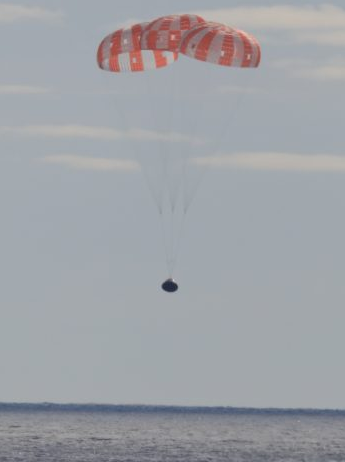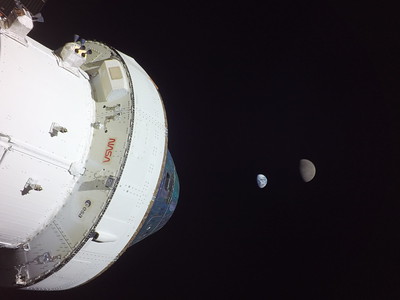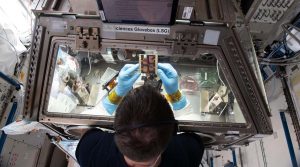Orion Splashdown Concludes Historic Flight
11th Dec 2022
The Orion spacecraft returned to Earth at 1840 GMT 11th December. The Orion splashdown occurred off the coast of California. The vertical parachute-assisted splashdown is a first in decades for US government space flights in contrast to the horizontal, land-based landings of the Space Shuttle and X-37 eras.
Orion Splashdown and data access
The splashdown marks the end of Orion’s 25.5 day mission, NASA noted in a press release on 11th December. The capsule is now due for further testing before being floated into a flooded well deck in the USS Portland. According to NASA, the deck has a cradle designed to hold the spacecraft, and once Orion is in, the deck will be drained to improve access. Orion includes an array of sensors to provide data about the performance of the craft.
The data taken from Orion, along with the telemetry sent during the flight will be used for the Artemis II mission. That mission, which will be crewed, is currently set for October 2024.
Orbital records
Orion set new records while on its flight. The most dramatic is that spacecraft went further from Earth than any manned-capable craft has ever gone. It also went further from the Moon while orbiting it than any such vehicle has before. One result of this is that Orion’s on-board cameras captured images that have never been seen before.

Goonhilly Earth Station and Orion
Goonhilly Earth Station (GEC) in Cornwall played an essential role in tracking Orion and relaying communications for the mission. GEC was also contracted by commercial satellite owners who had sent lunar orbiting satellites up with Orion on this historic mission. While most eyes were on the Orion splashdown, the fates of the satellites make for their own sagas.
Orbital Today looked into what happened to some of the satellites after separation from Orion. You can read about it here.






Thank you for your comment! It will be visible on the site after moderation.